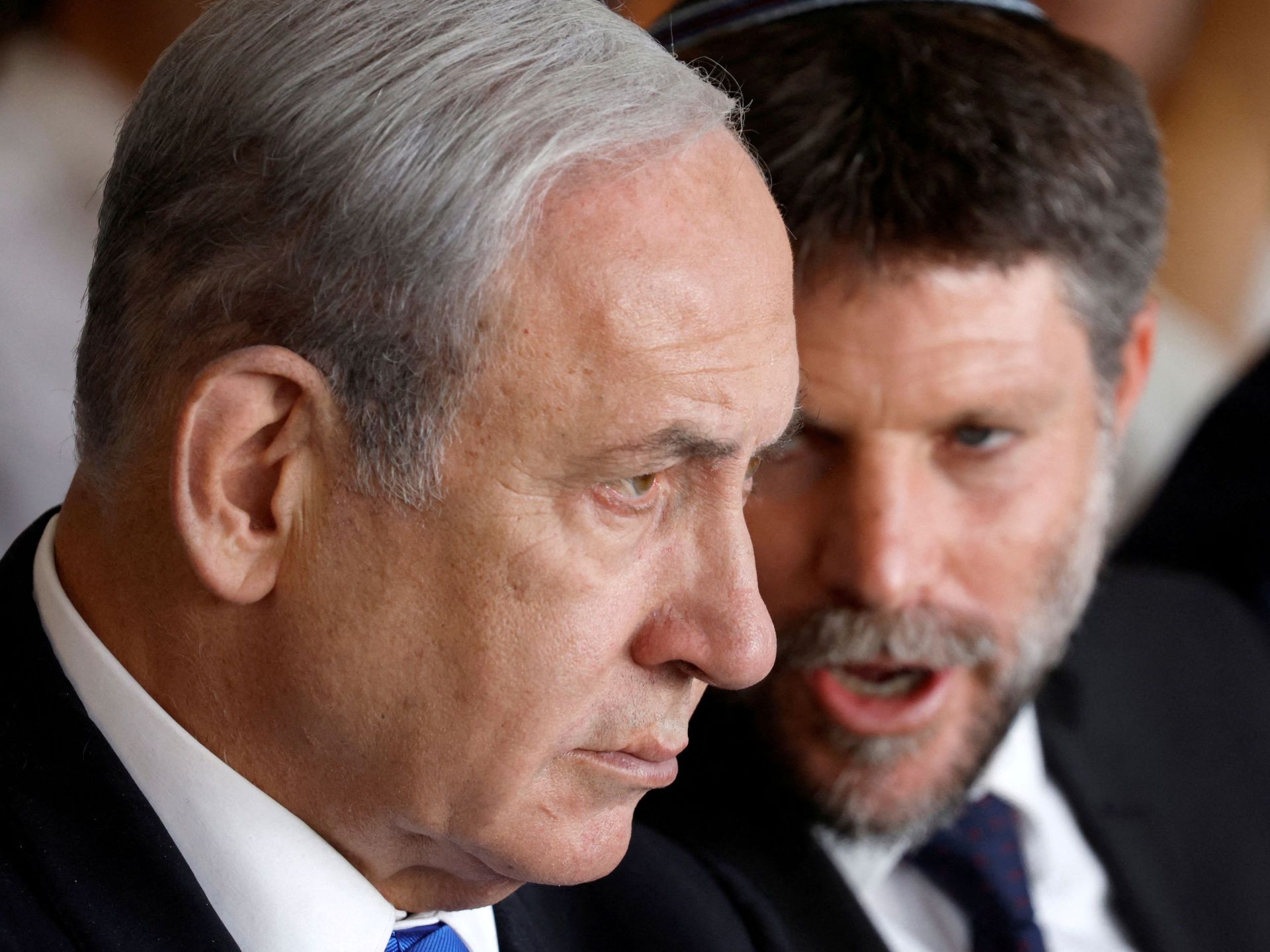An Israeli writer believes that Netanyahu is maneuvering to waste the prisoner exchange deal in order to preserve his ruling coalition (Reuters)
An Israeli writer said that Prime Minister Benjamin Netanyahu is cornered after the War Council ministers now support a prisoner exchange deal with the Islamic Resistance Movement (Hamas), and the exhausted army also wants it, but Netanyahu is maneuvering to overthrow it (waste it) in order to preserve his ruling alliance.
In an article in the newspaper "Haaretz" entitled "Netanyahu knows that all the Ministers of the War Council support the deal, and he is cornered," Raviv Drucker wrote that Israel is "scraping its feet" about two months after the start of the ground war in the Gaza Strip, and that the army admits that there is disappointment in its ranks. From the bottom of the pyramid to the top.
The writer attributes the reason to the original plan put forward by the army and approved by the War Council, which calls for a three-stage operation lasting for a year, but the force allocated to implement the third stage - which is the current one - cannot do most of what it is doing, and there are not enough forces to launch an operation in the central camps. The Gaza Strip, not to mention Rafah, and there is also no deal imposing a ceasefire.
Between Khan Younis and Beirut
In order to explain the military complications, the writer gave the example of Khan Yunis, where battles have been going on for three months, while the siege of Beirut, a much larger city, lasted only two months.
He wrote that War Council Minister Benny Gantz and Chief of Staff Gadi Einzenkot know that they made a mistake by approving an endless plan that he sees as befitting Hamas, not a modern state that wants normal life to return, and whose current prime minister is looking for a war that will never end.
The Israeli writer ridicules what is circulating in the media about leaks that indicate a hardening of Hamas’ position, with which Yahya Sinwar - according to her - now wants to continue the war in Ramadan after he wanted a deal by this month, saying sarcastically that the alleged leaks are based on amazing sources of information that “always know how to Sinwar's intentions are interpreted to conclude that "someone is preparing public opinion to reject the features of the deal."
Hamas demands
As for the truth - the writer states - it is slightly different from what was mentioned above. Hamas dropped its most difficult demand, which is that the deal begin with an Israeli commitment to stop the war and withdraw from the Gaza Strip, even if it is true that with its retreat from this demand, it now wants a reward greater than that, as it no longer stipulates, for example, 10. There are more Palestinian prisoners - including those with high security sentences - for every Israeli prisoner, and a much higher number that may reach one for every 20 and perhaps more.
Likewise, Hamas is not satisfied with stipulating the withdrawal of Israeli forces from city centers, but it wants a greater withdrawal than that, nor is it stipulating the return of women, children, and the elderly to northern Gaza, but rather allowing the return of men as well.
The writer believes that there is no shame in accepting these conditions, even if he acknowledges their difficulty, as “the price we paid in the Shalit deal was much higher.”
But Netanyahu knows the outcome he will end up with, as this was the basis of the Cairo negotiations, and he realizes that all the Ministers of the War Council accept this negotiating basis, including the hard-liner Yoav Gallant and the Minister of Strategic Affairs, Ron Dermer, who believe that there is a need for a deal that the army also wants, but it strikes the most important thing. Netanyahu's tasks: Maintaining his ruling coalition, which includes Internal Security Minister Itamar Ben Gvir and Finance Minister Bezalel Smotrich.
The article concludes that for this reason, Netanyahu may set new conditions, such as receiving the names of living prisoners before each deal - even though he did not mention this condition except in the media, and this was not his way of preserving his alliance - until the moment of truth comes and he accepts the deal in the end.
Source: Haaretz

